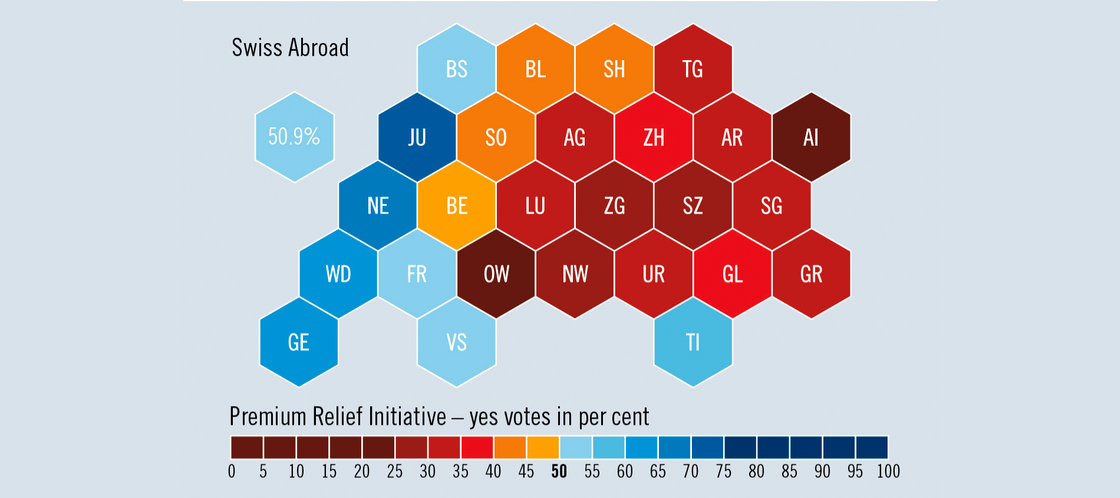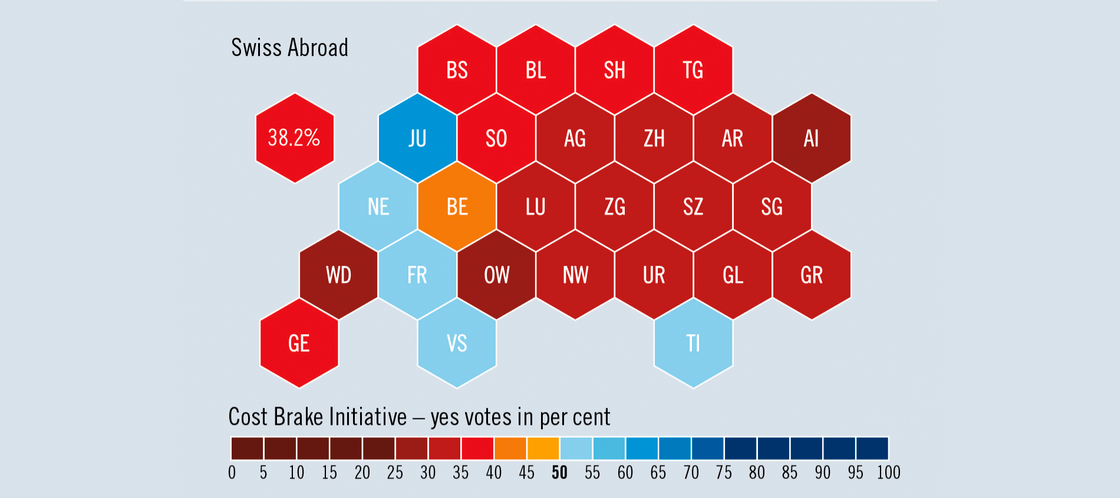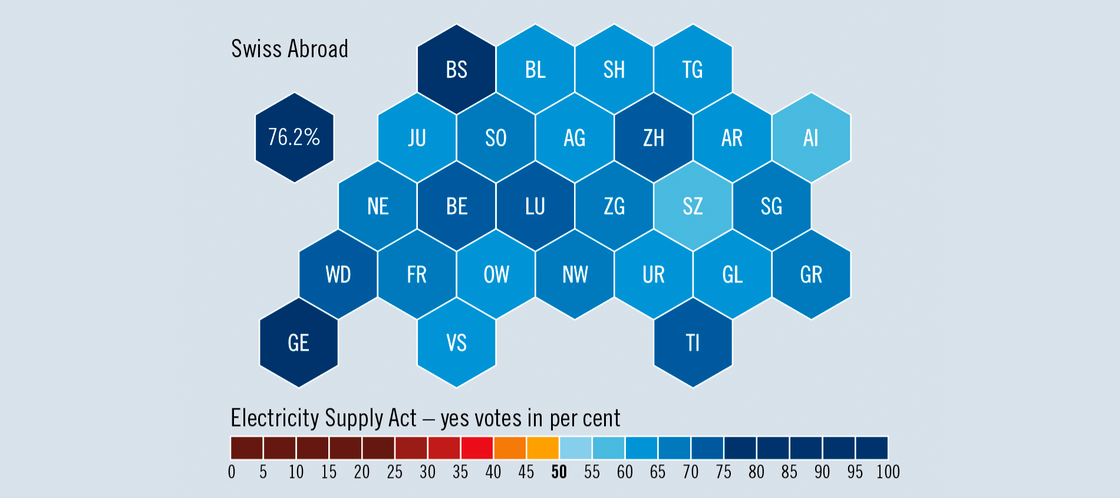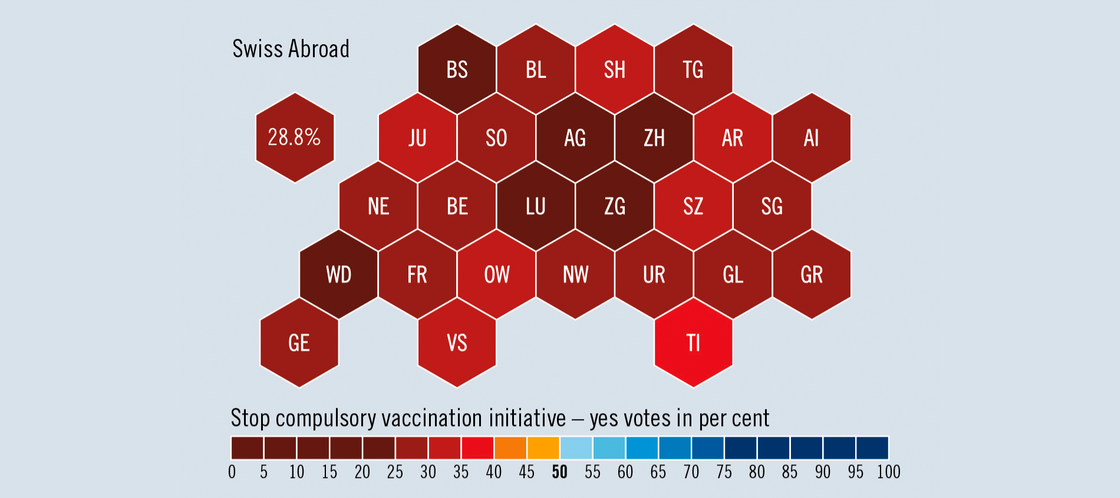Initiatives fail but problems remain
26.07.2024 – Theodora Peter
On 9 June 2024, Swiss voters rejected two popular initiatives putting forward various solutions for Switzerland’s very high healthcare costs. This unresolved problem will remain something of a political hot potato.
Three months after the surprise public decision in favour of a 13th month of OASI (old-age and survivors’ pension) payments, a second sociopolitical shock failed to materialise. Even though many households are creaking under the strain of high health insurance premiums (see “Review” 3/2024), a majority of voters rejected the idea of extending further reductions. The SP’s premium relief initiative would have primarily benefited low-income earners, who currently spend over ten per cent of their income on health insurance. The initiative received widespread support in French-speaking Switzerland and in Ticino, where premiums are higher than in other regions. The German-speaking cantons, however, and thus the majority of voters (55.5 per cent) vetoed the proposal. Opponents of the initiative had stressed during the campaign that the measure would cost billions. The Swiss Abroad supported the Yes camp in vain: they narrowly approved the proposal.
The second proposal on healthcare costs submitted to the vote of the people was an even bigger failure. The so-called “Cost brake in the healthcare system” measure was rejected by 62.8 per cent of voters; even the Swiss Abroad were against it. Only five cantons approved the Centre Party’s initiative. The Centre had hoped that these cost brakes would create more pressure to lower costs in reality. A majority of voters were nonetheless concerned that adopting such a scheme could lead to a two-tier healthcare system.
Federal Council to state cost targets
The failed initiatives have not been entirely for nothing. In both cases, indirect counter-proposals that had previously been approved by parliament come into effect. Cantons that until now had invested only a little in reducing premiums will now have to devote more money to the issue, although considerably less than the initiative would have required. Instead of cutting costs, the Federal Council will now set cost and quality targets every four years for the healthcare sector. This is intended not least to clarify which costs are medically justified. From the perspective of the healthcare economy, this is a step in the right direction, but demographic trends are posing further challenges. The baby boomer generation is now of retirement age, and an ageing population means more costs for doctor’s visits and hospital stays.
The people want the best possible care
Expensive healthcare remains one of the major financial concerns for the Swiss population. Health insurance premiums have more than doubled in the past 20 years, and a further increase is looming in 2025. The various stakeholders involved were previously unable to agree on which reforms would curb this trend. A new financing model, which would provide greater incentives for outpatient treatment instead of costly hospital stays, is expected to ease the financial burden. The people will have the final word on this decision as well.
A single health insurance, coordination or streamlining?
The political parties are backing various solutions: the SP is once again raising the idea of a single public health insurance fund. This would end the pseudo-competition between the 45 private health insurance funds and thus save money. The Centre wants to force cantons to coordinate with each other on hospital planning. The FDP and SVP, on the other hand, are arguing for a reduction in the catalogue of treatments covered by health insurance. Until now, however, voters have always rejected any proposals that might have limited insurance coverage. In an emergency, everyone wants the best possible medical care for them and their loved ones.
Antivaxxers out of luck
On 9 June, two additional proposals were put to the vote. By giving a clear Yes (68.7 per cent) to the Electricity Supply Act, the Swiss paved the way to bolstering domestic energy production from renewable sources like water, sunlight and wind. The initiative against “mandatory vaccinations” had no such luck, however. Critics of the anti-Covid measures sought to have a corresponding ban entered into the constitution. But 73.7 per cent of voters saw this as unnecessary: it is already the case that people cannot be vaccinated against their will.
Overview of the ballots on 22 September 2024
Biodiversity initiative
In the view of nature and environmental organisations, Switzerland is doing too little to preserve diverse habitats. One-third of all species of animals and plants in Switzerland are endangered or already extinct. The biodiversity initiative would enshrine stronger protection for natural habitats in the constitution. The government would provide more land and greater funding for this purpose. The Federal Council initially wanted to amend legislation in order to accommodate the aims of the initiative. However, this indirect counter-proposal was shot down in the Council of States – not least due to resistance from farmers (more on the farming lobby in the Focus on pages, “Powerful farming lobby, powerless farmers – VERLINKEN”). Opponents of the biodiversity initiative feel that its demands go too far. They are concerned that the restrictions placed on using land for farming, electricity production or tourism will be excessive.
Link to the initiative: www.biodiversitaetsinitiative.ch
“No” movement: www.biodiversitaetsinitiative-nein.ch
Occupational pension reform
Pensions from pension funds – the 2nd pillar of old-age pensions after the OASI – have been under pressure for a while. The main reason is the increasing life expectancy of the population. The reform of occupational pensions (OPA) approved by parliament should secure financing for the OPA, including by lowering the conversion rate from 6.8 per cent to 6.0 per cent. This will lead to lower benefits, which are to be offset via pension supplements for the transitional generation. The Swiss Federation of Trade Unions has launched a referendum against the proposal. In its view, the compensation for lower pensions is insufficient. In addition, workers will have to pay more, in the form of higher wage deductions. Centre-right supporters of the initiative, however, feel that the reform will strike a fair balance between the young and the elderly. They also point out that part-time workers on low incomes will be insured under the second pillar for the first time.
Link to the referendum: www.rentenabbau.ch
“Yes” movement: www.ja-bvg.ch
















Comments